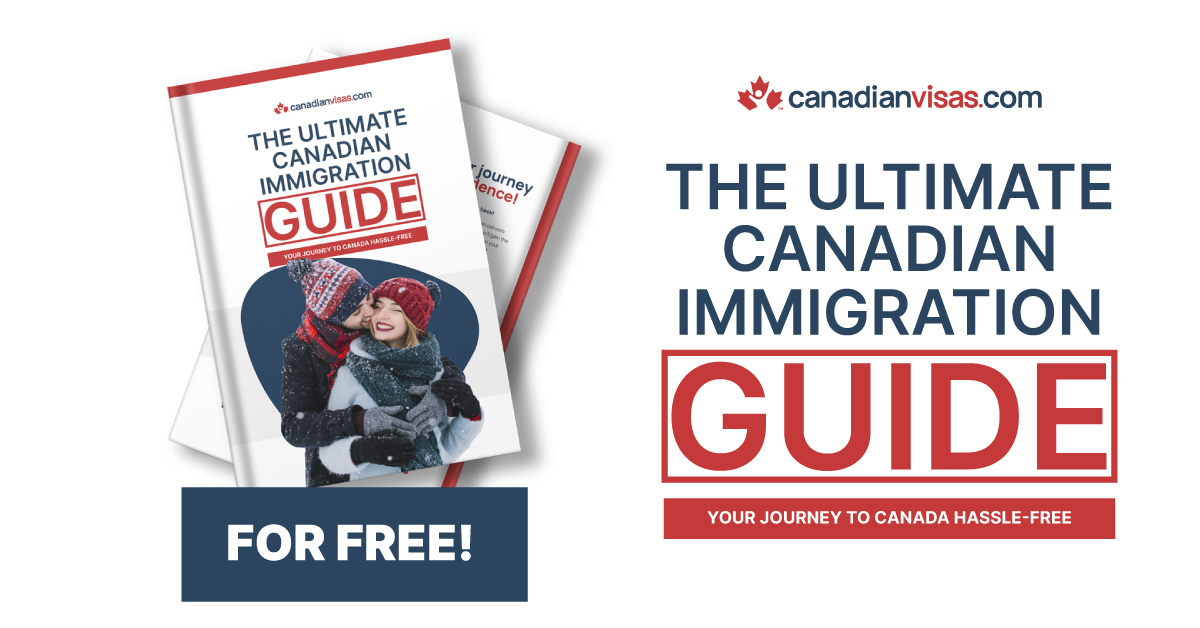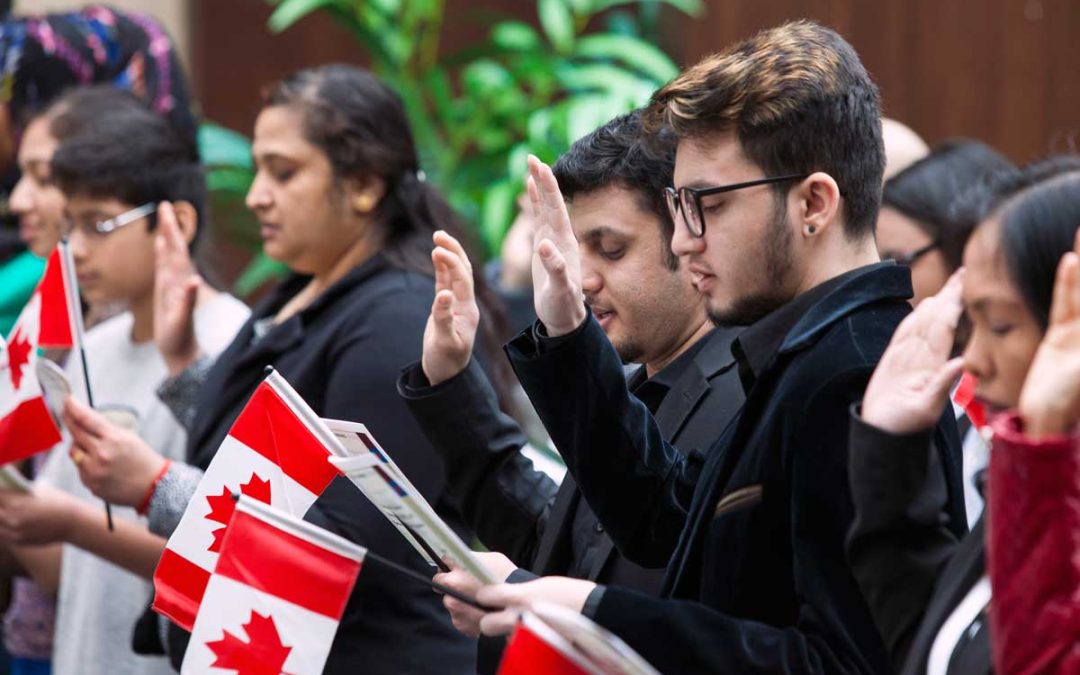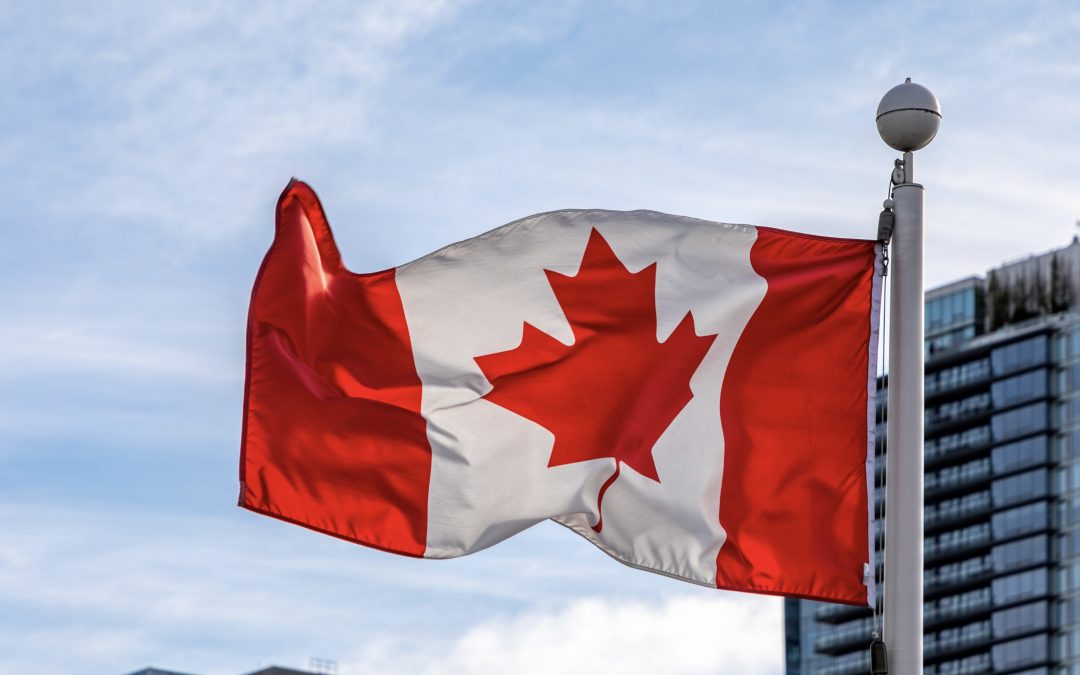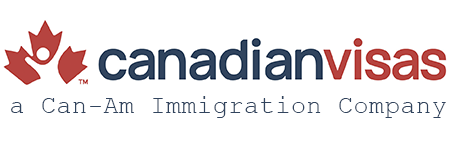
May 30, 2024 | Blog, Express Entry, Immigration, Permanent Residency, Why you need an immigration specialist
Recent Canada Express Entry draw
In the latest Express Entry draw held on May 30, 2024, Immigration, Refugees and Citizenship Canada (IRCC) issued 2,985 invitations to apply to eligible candidates.
This draw targeted Provincial Nominee Programs, with a minimum Comprehensive Ranking System (CRS) score of 676.
This marks the first program-specific draw since the introduction of category-based selection last June, focusing on candidates from a specific permanent residency program.
Today’s draw is the first since April 24, which capped off a month that included general, STEM, and French proficiency draws.
Express Entry: Canada holds an All-Program draw on April 23, 2024
Understanding Express Entry
Express Entry is an innovative application management system that oversees the Federal Skilled Worker Program, the Canadian Experience Class, and the Federal Skilled Trades Program. Candidates in the Express Entry pool are assessed based on various factors like work experience, language ability, education, and age. They are assigned a Comprehensive Ranking System score, and those with the highest scores are most likely to receive an ITA.
Benefits of Express Entry
Moreover, Express Entry has revolutionized how Canada selects its immigrants, prioritizing those who bring valuable skills and experience to the country. With unparalleled efficiency, this program processes applications at lightning speed, providing applicants with the opportunity to settle in Canada quickly and effectively.
Eligibility and Requirements
To succeed in Express Entry, meeting certain requirements is paramount. Your work experience, education, language proficiency, and other factors will determine your score in the Comprehensive Ranking System (CRS). Keep your documents in order and strive to reach the minimum required score to receive an invitation.
Tips to Increase Your Chances
Want to enhance your chances of receiving an ITA in future draws? Here are some tips to boost your Express Entry profile:
- Improve Language Skills: Dedicate time to enhancing your language proficiency in English or French. Higher language scores can significantly improve your CRS score.
- Job Offer Advantage: Having a valid job offer from a Canadian employer can increase your CRS score and chances of receiving an ITA.
- Maximize Education: Pursue higher education to gain additional points in the CRS system and stand out in future draws.
- Stay Informed: Stay updated with the latest Express Entry draws and changes to the selection criteria.
- Professional Guidance: Furthermore seek assistance from experienced immigration consultants to navigate the Express Entry process smoothly and optimize your profile.

https://bit.ly/TheUltimateCanadianImmigrationGuide
How can we help you?
When you receive an ITA (Invitation to Apply), a new series of steps begins for you to obtain your permanent residency in Canada.
Get in touch with us as soon as possible to get access to our Post-ITA (post invitation to apply) services.
Do you want to do it yourself? Find out more about how to get an ITA and what to do next – Quick Guide.
Our expert immigration consultants are here to guide you through the Express Entry process and ensure a seamless and successful journey to permanent residency in Canada! You can speak with one of our consultants by clicking the button below.

May 28, 2024 | Becoming a Sponsor, Blog, Immigrate to Canada, Immigration, Immigration Reform, In the News, New Laws
Immigration, Refugees and Citizenship Canada (IRCC) issued invitations to potential sponsors for the 2024 Parents and Grandparents Program (PGP) on May 21st, 2024. This program facilitates family reunification by allowing Canadian citizens and permanent residents to sponsor their parents and grandparents for permanent residency in Canada.
Eligibility for the 2024 PGP Intake
For the 2024 intake, IRCC will only be considering individuals who submitted their interest to sponsor forms in 2020.This is the fourth consecutive year with this eligibility restriction. Invitations were sent via email on a random basis starting May 21st, 2024.
Steps to Take After Receiving an Invitation to Apply (ITA)
If you receive an ITA for the PGP, it is crucial to act promptly as the application window is typically limited to 60 days.Here’s a breakdown of the key steps involved:
-
Gather Required Documentation: Carefully review the document checklist provided within the ITA. This will likely include proof of identity, your relationship to the sponsored individual(s), financial documentation, medical examinations, police certificates, and any other supporting documents outlined in the ITA.
-
Complete Application Forms: Ensure all application forms are filled out accurately and comprehensively. Double-check all information before submission to minimize the risk of delays or errors.
-
Process Fee Payment: Submit the required processing fees for both the sponsorship application and the permanent residency application for the sponsored individual(s). Failure to settle these fees will result in application rejection.
-
Online Application Submission: Once you have gathered all necessary documents, completed the application forms, and paid the processing fees, submit your application electronically through the designated government portal within the allotted timeframe.
-
Application Processing: Upon submitting your application, you will receive a confirmation message. Processing times for PGP applications can vary. It is recommended to exercise patience and await further communication from IRCC.
-
Potential Additional Information Requests: During the processing stage, IRCC may request additional documentation or information. Respond promptly to any such requests to avoid processing delays.
-
Final Decision on Application: You will be notified of the final decision on your application. If approved, you will receive instructions on the next steps, such as submitting your passport for visa issuance. If your application is rejected, you may have the right to appeal depending on the reason for rejection.
Alternative Option: Super Visa Program
If you were not selected for the PGP this year, the Super Visa program can be a viable alternative. This program allows parents and grandparents to visit Canada for extended stays of up to five years at a time, with the possibility of a two-year extension. Unlike the PGP, applications for the Super Visa program can be submitted throughout the year. IRCC also targets a faster processing timeframe of approximately 112 days for Super Visa applications.
Seeking Professional Assistance
Considering the complexities involved in the PGP application process, it is highly recommended to seek professional guidance from an immigration lawyer or consultant. We can assist you with navigating the application process, ensuring all requirements are met, and maximizing your chances of a successful outcome.

May 28, 2024 | Blog, Immigration, In the News, Preparation of Application, Work Permits, Working In Canada
When processing work permit applications for regulated occupations in Canada, like doctors, immigration officials don’t just look at your ability to do the job. They also need to be confident you have the qualifications to do it legally in Canada, which often means having the required license or certificate.
Making Sure You’re Qualified
Immigration, Refugees and Citizenship Canada (IRCC) or Canada Border Services Agency (CBSA) officers play a key role here. They’re responsible for verifying that applicants for work permits in regulated occupations possess the necessary education, certifications, training, or licensing to practice in Canada.
This can be tricky if you’re applying from outside Canada and can’t get licensed before you arrive. In those cases, IRCC or CBSA will assess the likelihood of you obtaining the license within a reasonable timeframe, typically within 4 months of entering Canada (think one semester of studies at most).
Not Having a License Isn’t an Automatic Disqualification
There are a couple of situations where the lack of a license might not automatically disqualify you from getting a work permit.
- Getting Licensed Once You’re In Canada: Some professions require licenses that can only be obtained by working in Canada itself.
- Working Under Supervision Until Licensed: For certain occupations like architects or surveyors, a licensed professional can review and approve your work until you get your own license.
General categories of occupations commonly regulated in Canada
- Healthcare Professions (e.g., doctors, nurses, pharmacists)
- Engineering Professions (e.g., civil engineers, electrical engineers)
- Legal Professions (e.g., lawyers, paralegals)
- Skilled Trades (e.g., plumbers, electricians, carpenters)
- Financial Services (e.g., accountants, financial advisors)
- Education Professions (e.g., teachers, principals)
Work Permit Options for Applicants Without a License
Even if you don’t have your license yet, there are still a couple of ways your work permit application might be approved:
-
Employer-Funded Training: If your employer offers to cover the cost of training or testing while you’re working for them, you’ll need to show proof that you’re enrolled in the program and have the language skills to succeed.
-
Starting in a Lower-Level Position: You could enter Canada in a lower-level position that doesn’t require the license, use that time to get licensed, and then apply for a new work permit in the higher-level occupation you originally aimed for.
Getting Approved or Denied
Ultimately, the processing officer will decide whether to approve your application. They’ll base their decision on whether they believe you’re likely to obtain the required license/certificate within a reasonable timeframe and meet all the other conditions. If they’re confident, they might approve your application with a specific condition requiring you to get your license within a certain time frame.
On the other hand, if the officer has concerns about your language skills, the availability or timeframe of the training, or your ability to afford it, they may have reason to deny your work permit application.

May 23, 2024 | Blog, Immigrate to Canada, Immigration, Immigration Reform, In the News, New Laws
In a significant move to expand access to Canadian citizenship, Immigration Minister Marc Miller has introduced Bill C-71, a new bill that proposes sweeping changes to the country’s citizenship by descent rules. This legislation aims to address historical injustices and provide a more inclusive and equitable path to citizenship for many individuals and families.
Key Provisions of Bill C-71
At the heart of Bill C-71 lies the elimination of the first-generation limit, a longstanding restriction that prevented children born abroad to Canadian parents born outside Canada from automatically inheriting citizenship. This change will have a profound impact on countless families who have long awaited recognition of their deep connections to Canada.
Furthermore, Bill C-71 streamlines the process for adopted children born outside Canada to Canadian parents beyond the first generation to acquire citizenship. This direct grant of citizenship will eliminate unnecessary bureaucratic hurdles and provide greater certainty for these children and their families.
Recognizing the importance of maintaining a strong connection to Canada, Bill C-71 introduces a physical presence requirement for Canadian parents who have children abroad. After the legislation’s implementation, these parents will need to demonstrate a substantial connection to Canada (at least 1,095 days of physical presence) to pass on citizenship to their children.
Bill C-71 also takes significant steps to address the issue of “Lost Canadians,” individuals who lost or never acquired Canadian citizenship due to outdated provisions in previous citizenship laws. The bill grants automatic citizenship to these individuals and extends citizenship to their descendants, as well as those born abroad to a Canadian parent in subsequent generations before the Act is implemented.
Addressing the “Lost Canadians” Issue
The “Lost Canadians” refer to individuals who lost their Canadian citizenship due to a previous law requiring them to apply to retain it before turning 28. This outdated provision resulted in many individuals inadvertently losing their citizenship, creating a sense of injustice and disconnect from their Canadian heritage. Bill C-71 rectifies this by granting these individuals automatic citizenship, restoring their rightful status as Canadians.
Bill C-71 vs. Bill S-245
The introduction of Bill C-71 comes after delays in the passage of Bill S-245, a similar bill introduced in the Senate. While both bills aimed to address citizenship by descent issues, Bill C-71 offers a more comprehensive and forward-looking approach. It not only addresses the immediate concerns of “Lost Canadians” and their families but also establishes a clear and consistent framework for citizenship by descent for future generations.
Looking Forward
The proposed changes in Bill C-71 are expected to have a positive impact on a significant number of individuals and families. Once Parliament approves the bill, Immigration, Refugees and Citizenship Canada (IRCC) will provide further details and implement the new procedures. These changes will undoubtedly bring greater fairness and inclusivity to Canada’s citizenship system, reflecting the country’s diverse and interconnected population.
Additional Notes
- Bill C-71 is currently in the early stages of the legislative process. It will need to pass through both the House of Commons and the Senate before becoming law.
- IRCC has indicated that it will provide more information on the implementation of Bill C-71 once the legislation is passed.
- Individuals who may be affected by the changes in Bill C-71 are encouraged to stay informed and consult with an immigration lawyer or representative for guidance.

May 15, 2024 | Blog, Immigrate to Canada, Immigration, Immigration Reform, In the News, New Laws
Canadian employers seeking to hire temporary foreign workers (TFWs) through the Labour Market Impact Assessment (LMIA) program will be interested in a recent update from Employment and Social Development Canada (ESDC). On May 14, 2024, ESDC released revised processing times for LMIA applications across various streams.
The LMIA program is a crucial step for employers who wish to bring in foreign talent to fill specific job vacancies. By obtaining a positive LMIA, employers demonstrate to the government that they have made a good faith effort to recruit qualified Canadian citizens or permanent residents for the position, and that hiring a foreign worker will not negatively impact the domestic labor market.
What Changed?
The update from ESDC reflects the current average processing times for LMIA applications based on data from all processing centers. Here’s a breakdown of the changes for each stream:
- Global Talent Stream: Employers seeking to hire highly skilled or in-demand workers through the Global Talent Stream can expect a processing time of 7 business days, which remains unchanged.
- Agricultural Stream: Processing times for the Agricultural Stream, used to hire temporary foreign workers in agriculture and related occupations, have seen a slight increase to 13 business days (up from 10 days).
- Seasonal Agricultural Worker Program: Employers bringing in seasonal agricultural workers will see a more significant increase, with processing times moving to 10 business days (up from 7 days).
- Permanent Residence Stream: The Permanent Residence Stream, which supports temporary foreign workers seeking permanent residency in Canada, has seen the longest delay increase, with processing times reaching 80 business days (up from 79 days).
- High-wage Stream: Employers offering high-wage positions can expect some welcome news. Processing times for the High-wage Stream have decreased to 43 business days (down from 51 days).
- Low-wage Stream: The Low-wage Stream has also seen a processing time reduction, with applications now taking an average of 46 business days (down from 55 days).
Important Considerations
It’s important to remember that these are average processing times. Individual applications may take longer or shorter depending on specific circumstances. Here are some factors that can influence processing timelines:
- Completeness of application: Ensure your application includes all required documentation and is filled out accurately to avoid delays.
- Complexity of the case: More complex cases, such as those involving unique job requirements or foreign worker recruitment efforts, may take longer to process.
- Work permit type: Processing times can vary depending on the type of work permit being sought for the foreign worker (e.g., open work permit vs. employer-specific work permit).
Planning Ahead is Key
Given the processing time variations, employers seeking to hire temporary foreign workers are advised to plan ahead.Here are some tips:
- Start the LMIA application process early: Don’t wait until the last minute to submit your application, especially if you’re utilizing the Seasonal Agricultural Worker Program or Permanent Residence Stream with their longer processing times.
- Carefully review application requirements: Familiarize yourself with the specific requirements for your chosen LMIA stream and ensure you have all necessary documentation readily available.
- Seek professional guidance: Consider consulting with an immigration lawyer or consultant specializing in LMIA applications for assistance with the process.
The recent update from ESDC provides valuable insights for Canadian employers navigating the LMIA program. By understanding the current processing times and taking proactive steps, employers can ensure a smoother experience when hiring foreign workers to fill their labor needs.

May 15, 2024 | Blog, Immigrate to Canada, Immigration, Immigration Reform, In the News, New Laws
British Columbia is actively seeking talented business leaders to establish themselves in the province through the British Columbia Provincial Nominee Program (BCPNP). On May 14, 2024, the BCPNP conducted new invitation rounds for its Entrepreneur Stream, offering a pathway to Canadian permanent residence for experienced business individuals.
Entrepreneur Stream: A Gateway to Opportunity
The Entrepreneur Stream is a two-step immigration program designed to attract experienced entrepreneurs who can contribute to British Columbia’s economic growth. Successful applicants first receive a work permit to establish or acquire a business in the province. Once their business is operational and meets specific criteria, they can apply for permanent residence in Canada.
There are two categories within the Entrepreneur Stream:
- Base Category: Open to experienced entrepreneurs who wish to establish a new business venture or purchase an existing one in British Columbia.
- Entrepreneur Immigration – Regional Pilot: This category caters to entrepreneurs who are referred by a participating community within British Columbia. These communities are typically looking for businesses that align with their specific economic development goals.
Recent Draw Results
The latest draws, conducted on May 14, 2024, saw invitations issued to a limited number of candidates in both categories. Here’s a breakdown of the results:
- Base Category: Five candidates received invitations, with the minimum cut-off score being 116 points. This is a slight increase compared to the previous draw.
- Entrepreneur Immigration – Regional Pilot: Up to five candidates were invited, with a minimum score requirement of 113 points.
It’s important to note that the maximum score achievable under the Entrepreneur Stream is 200 points. A higher score increases your chances of receiving an invitation to apply.
Eligibility Requirements: To Qualify for the BCPNP Entrepreneur Stream
To be considered for the BCPNP Entrepreneur Stream, you’ll need to meet several key requirements. Here’s a closer look:
- Business Experience: A minimum of two to four years of experience managing or owning a business that generated a certain level of annual revenue. Specific requirements vary depending on the category you’re applying under.
- Investment Capital: Possession of sufficient investment funds to establish or purchase a business in British Columbia. The minimum investment amount varies but typically ranges from $200,000 CAD to $400,000 CAD.
- Language Skills: Demonstrated proficiency in English or French through an approved language test.
- Business Concept: Submission of a well-developed business plan outlining your proposed business venture in British Columbia. This plan should demonstrate the viability of your business, its potential for job creation, and its contribution to the provincial economy.
- Net Worth: Meeting a minimum net worth threshold to ensure you have the financial resources to support yourself and your business during the initial establishment phase.
BCPNP’s Commitment to Entrepreneurship
British Columbia recognizes the valuable contribution that entrepreneurs make to the province’s economic prosperity and job creation. The BCPNP Entrepreneur Stream is a testament to this commitment, offering a pathway for experienced business leaders to build successful businesses and make a lasting impact on the province.
While 2023 saw invitations extended to 89 entrepreneurs, 2024 is on track for a more selective approach, with invitations issued to only 30 business candidates through the Entrepreneur draws so far. This emphasizes the importance of a strong application package and a well-defined business plan to stand out from the competition.
Considering the BCPNP Entrepreneur Stream?
If you’re an experienced entrepreneur with a vision for establishing a successful business in British Columbia, the BCPNP Entrepreneur Stream could be your gateway to Canadian permanent residence. Carefully review the eligibility requirements, develop a compelling business plan, and seek guidance from immigration professionals to ensure your application is competitive. By taking these steps, you can increase your chances of receiving an invitation to apply and take the first step towards building your dream business in Canada.








 Useful Resources for Canada
Useful Resources for Canada
 Useful Resources for U.S.
Useful Resources for U.S.
 Our Local Immigration Services
Our Local Immigration Services